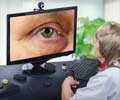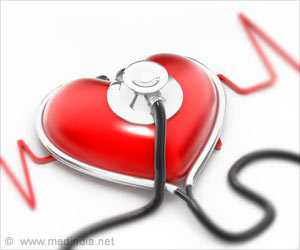Telemedicine, the amalgamation of medicine and modern communications technology, is raising hopes in health care.
Telemedicine, the amalgamation of medicine and modern communications technology, is raising hopes in health care. The ability to monitor patients at a distance means they can leave the hospital earlier and avoid unnecessary visits to the doctor, which also saves money.
Christian Weigand, a computer scientist at the Fraunhofer Institute for Integrated Circuits in Erlangen, Germany, said telemedicine could help people with sleep apnea, a breathing disorder.Weigand is a member of a team that has developed a portable "laboratory" designed to help diagnose the condition as well as monitor it during therapy.
The device is contained in a small box that the patient straps around his or her chest before sleeping. Using sensors attached to the body, the device records the patient's breathing, pulse, heartbeat, oxygen level in the blood, and sleeping position.
The data are transmitted via short-range radio with Bluetooth technology to a base station in the patient's home, which analyses them and sends them to the treating physician. All the patient needs is a telephone line.
Heart patients will benefit most, and are already benefiting from telemedicine. According to the German Cardiac Society, many people with acute symptoms of chronic cardiac insufficiency can avoid a trip to the hospital, if they are in an electronic security network that remotely monitors key physiological data.
The latest cardiac pacemakers and defibrillators, implanted in people suffering from ventricular fibrillation, check themselves and send an email to the treating physician if they are not functioning properly. The physician then schedules a visit. Otherwise a heart patient may rely for months - until the next regular check-up - on a defective device.
Advertisement
Devices developed by US company Medtronic measure the electrical resistance between the pacing lead in the heart and the pulse generator under the collarbone. A drop in resistance is a sign that fluid is collecting in the lungs. The physician is then notified via a mobile-phone text message.
Advertisement
It sends the data by radio to a personal computer or personal digital assistant, whose software makes a health assessment and gives warnings and health tips via email.
The monitoring techniques available in telemedicine will mainly benefit people who are familiar with modern information technologies, noted Wolf-Dietrich Lorenz, editor in chief of Munich-based Krankenhaus-IT Journal (Hospital-IT Journal).
"Elderly people who can't make sense of these technologies will definitely be in over their heads," he remarked.
Source-IANS
SRM











